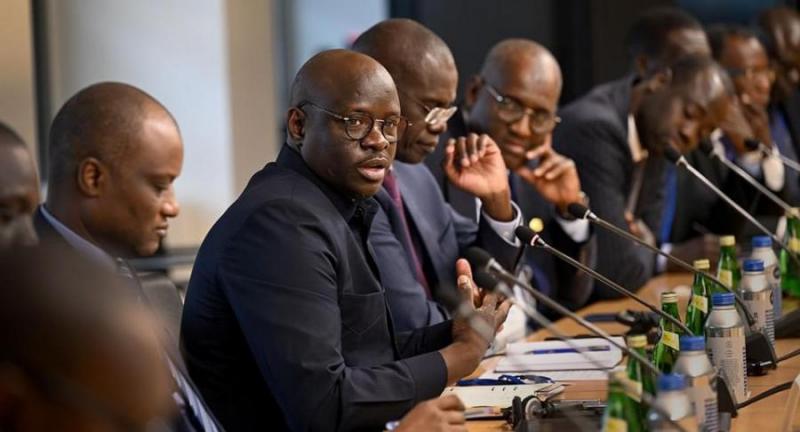Moody’s downgrades Senegal’s rating: Diba seeks the right tempo

Forced to acknowledge the downgrading of Senegal’s rating, the government is not presenting a solution different from what has always been done in terms of budgetary transparency and financial governance.
The Moody’s rating agency has just downgraded Senegal. The Ministry of Finance and Budget released a press release to share the information. In truth, Cheikh Diba’s department could have done without this exercise because it doesn’t teach the Senegalese anything. Apart from the fact that Senegal’s rating went from “Ba3 with a stable outlook to B1 with a watch,” the rest of the document is just a pile of platitudes.
Press briefing on Macky’s management: Sonko’s DPG
The minister, who is a whitewashed agent in the ministry he heads today, is well placed to know that he is not bringing any innovation to what has always been done to date. When the press release indicates that the State will begin reforms, which will focus in particular on « the adoption of integrated and computerized financial systems, the strengthening of control mechanisms and the improvement of institutional coordination to guarantee effective decision-making (…) in line with community standards linking our country to ECOWAS and UEMOA, while complying with best practices », it does not say something new.
[themoneytizer id= »124208-2″]
Since the adoption of the WAEMU Harmonized Framework for Public Finances, which ECOWAS members are trying to implement, Senegal has always distinguished itself as one of the most diligent countries in implementing transparency rules in the management of public finances. This is what has earned it a good appreciation from international institutions and financial partners.
Declaring that « structural reforms aimed at strengthening the integrity of the public finance management framework will be implemented, aiming for high international standards. In this spirit, Senegal will continue its collaboration with its international partners, notably the World Bank and the IMF, but also ECOWAS, UEMOA, BCEAO, the African Development Bank, BOAD and all its regional partners, to improve debt management, strengthen financial governance and ensure increased transparency in budgetary processes »; looks more like smoke and mirrors.
Understandably, the Minister of Finance, will never publicly say the part played by his head of government’s statements in the rating agencies’ decision to downgrade the country’s rating, even though it has been nearly 20 years since Moody’s last downgraded Senegal’s rating. However, everyone knows that in the last months of President Wade’s governance, Senegal’s public finances were far from being in good shape. Should we believe, as some say, that it took less than a year to call into question all the work that has been done over the years? If that is the case, the Minister of Finance should find himself a very strong umbrella, because the weather does not seem to be clearing up any time soon.
Moreover, after having shouted its desire for « economic sovereignty » and its concern to do without external borrowing in order to build a solid and self-managed economy, the government would like to turn as little as possible to external borrowing. Under these conditions, what need does the minister have to worry about the rating of the country’s economy?
By Mohamed GUEYE / mgueye@lequotidien.sn

